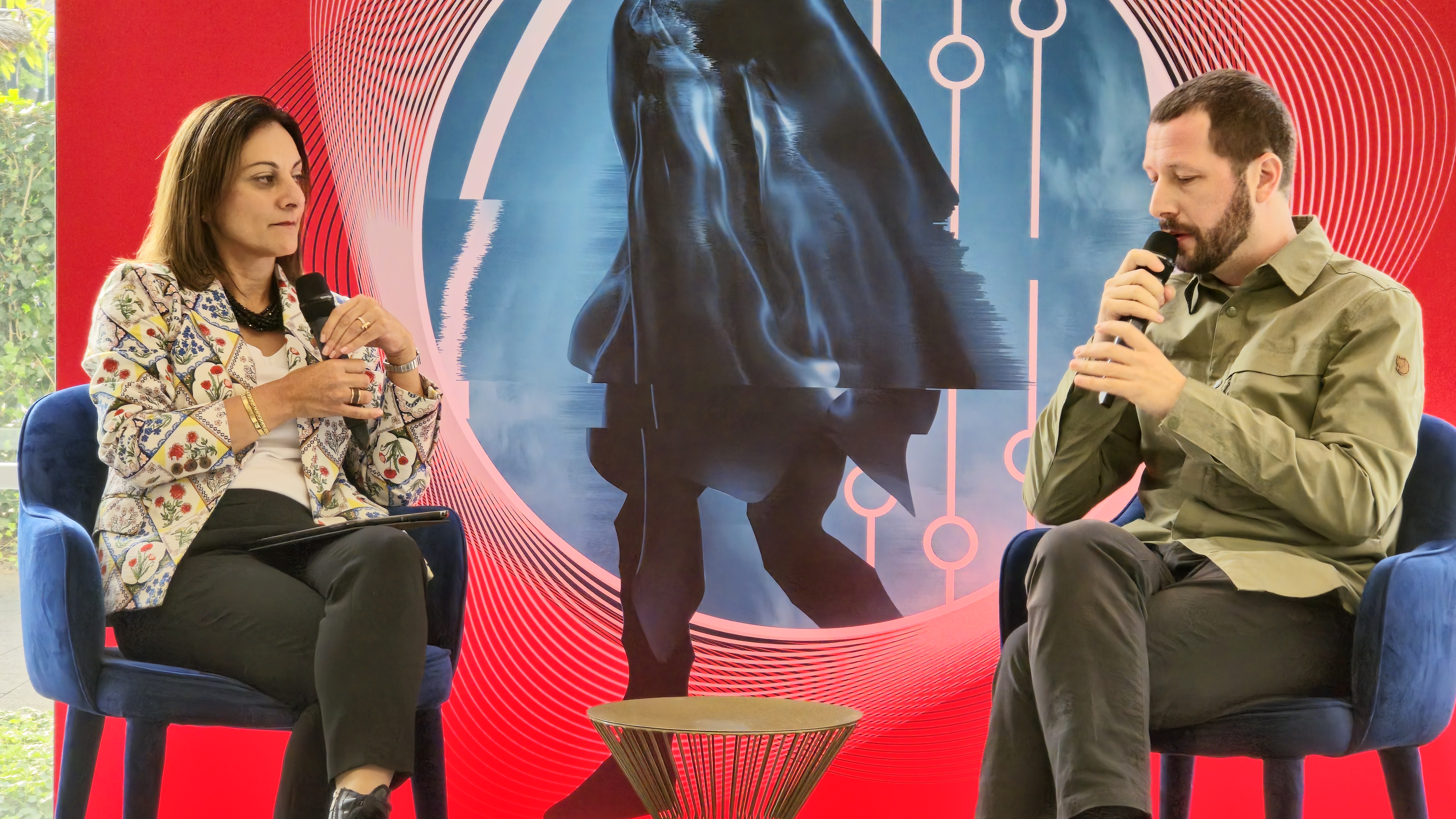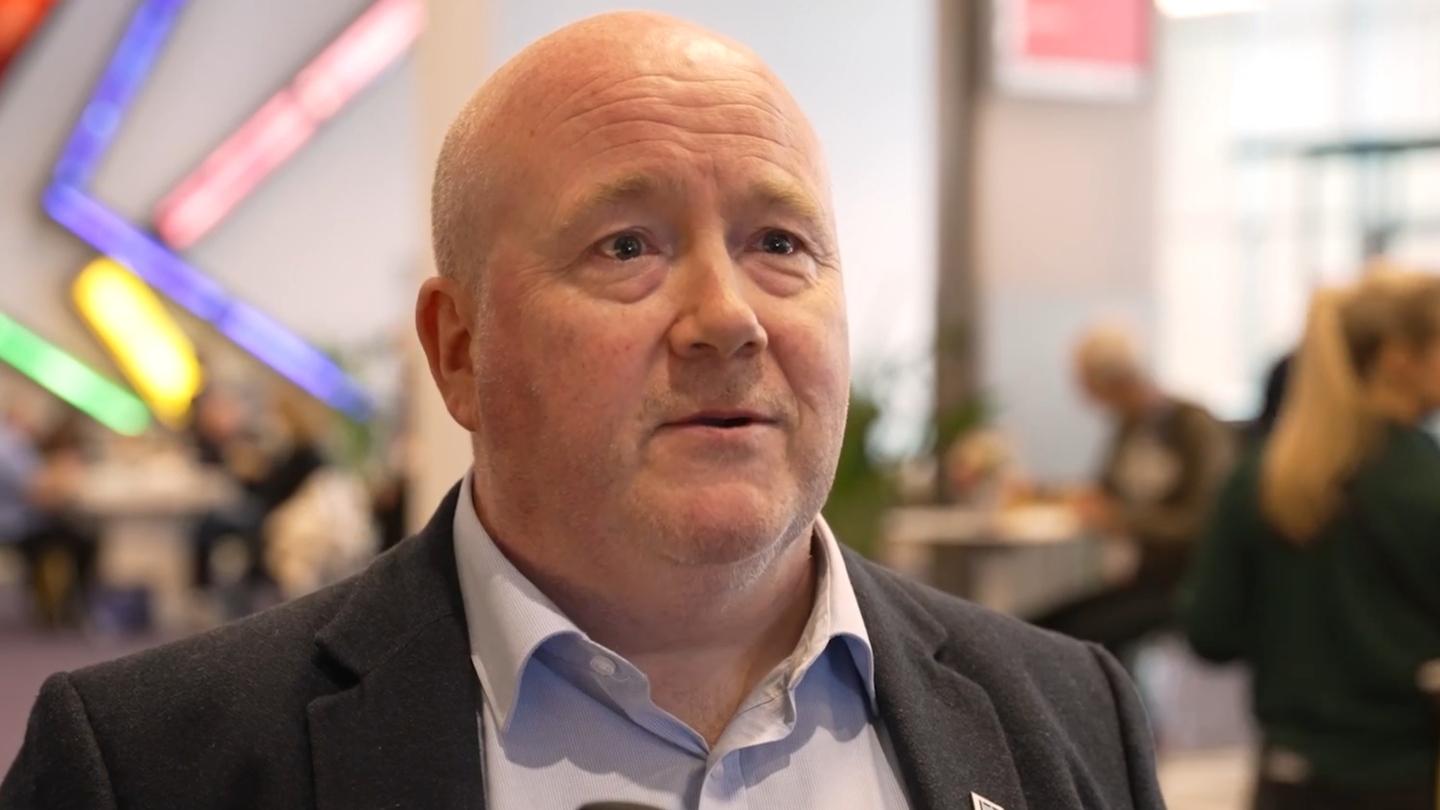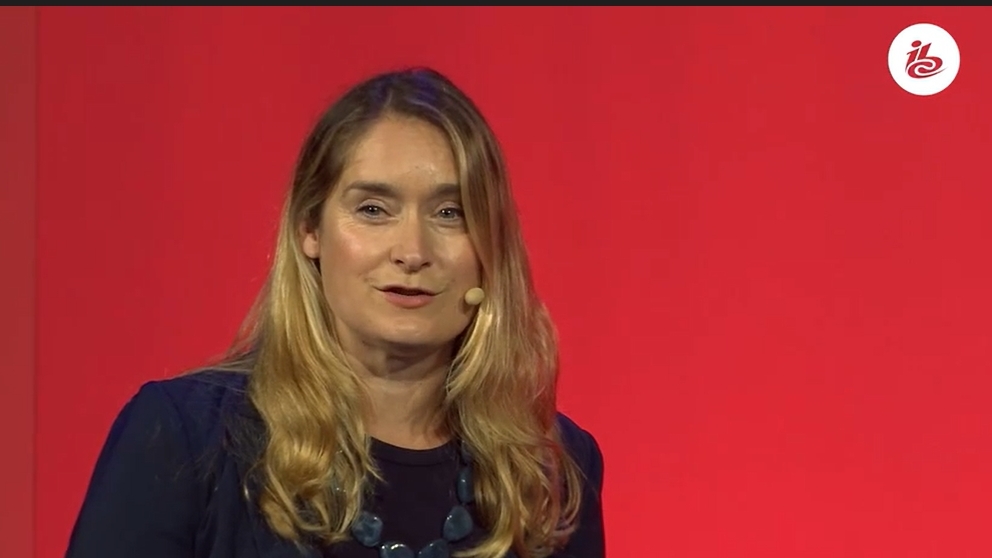Journalist, filmmaker and war correspondent Mstyslav Chernov shared insights into his experiences covering conflicts, particularly the war in Ukraine, during an interview closing out this year’s IBC conference sessions.
Chernov discussed the challenges of reporting from war zones, the evolving nature of warfare, and the significance of accurate journalism in an era of widespread misinformation. Chernov is widely recognised for his work, notably his documentary ‘20 Days in Mariupol,’ which has won an Oscar for Best Documentary Feature Film, a BAFTA, and a DGA award, among many others. He is in Amsterdam to accept the IBC International Honour for Excellence (IHFE).

Chernov began his career as a documentary photographer but was thrust into war journalism when conflict erupted in Ukraine. He explained that as war came to his doorstep, he, along with many of his peers, became war correspondents by necessity. His work transitioned from daily journalism to more in-depth reporting, which he believes is essential in the face of misinformation. According to Chernov, reporting from war zones has become significantly more dangerous due to advanced weapons like drones and high-precision targeting systems, making journalists potential targets.
Chernov warned of the power of misinformation in modern warfare. He compared it to a weapon, highlighting how countries and groups have realised the strategic importance of controlling the narrative. In his experience, it is not enough to simply report events; journalists must ensure that their reports are not misinterpreted or distorted. This challenge has grown over the last decade as fewer reporters make it to the front lines, leading to a scarcity of reliable information.
Despite the dangers, Chernov remains motivated to cover conflicts, driven by the suffering he witnesses and a moral obligation to document these events. However, he acknowledged the emotional toll that war reporting takes on journalists. He stressed the importance of having a support system, including editors and colleagues, to help draw ethical lines and ensure that journalists do not overextend themselves. For Chernov, teamwork is crucial; in war zones, he works in teams of three to four people, making collective decisions about safety.
Coping with the trauma of war is another significant aspect of Chernov’s work. He noted that while psychological support from friends, family, and counsellors is vital, the real challenge often arises after leaving the war zone. In the silence that follows, journalists are left to process the horrors they have witnessed. Chernov explained that many journalists continue working in conflict zones as a way to make sense of their experiences and avoid confronting their trauma directly.
Chernov’s documentary ‘20 Days in Mariupol’ was a significant project for him. He explained that daily news reports could not fully capture the complexity of the war, which motivated him to create the film. The documentary aimed to provide a comprehensive view of the conflict, countering the disinformation propagated by Russian media. He noted that Russia even produced its own fictional series about Mariupol to replace real information with propaganda.
On the topic of journalistic objectivity, Chernov argued that the term “objective” is often overused and suggested replacing it with “fair.” However, he cautioned against being too objective, as it can erode trust. For him, maintaining credibility with the audience is crucial, especially in a media landscape where people expect journalists to express their opinions.

IBC Accelerator programme kicks off in February
The IBC Accelerator Kickstart Day takes place at BBC Broadcasting House in London on 12 February 2025 and you can register to attend here.

IBC2024 sees growth across the board as AI takes centre stage
IBC2024 has announced that 45,085 visitors from 170 countries converged on the RAI Amsterdam on 13-16 September, bringing together the global media, entertainment and technology community to connect, showcase and discover innovations, tackle pressing industry challenges, and explore new opportunities.

Diverse hiring policies and established mentoring schemes essential for engaging future generations
IBC Talent Programme Part 1: At the wrap-up session on the final day of the conference, the IBC Talent Program highlighted the vital role diversity plays in shaping the future of the broadcasting industry.

IBC2024 celebrates pioneering media initiatives as it announces winners of IBC Innovation Awards
Innovative sports media and internationally acclaimed video journalism were celebrated today as the winners of the prestigious IBC Innovation Awards were announced at the RAI Amsterdam. The awards honoured the ground-breaking work of organisations transforming the media, entertainment and technology landscape, and recognise collaborative efforts to develop solutions that address real-world industry challenges.

IBC Stand Design Awards winners announced
There are many visually attractive, accessible and innovative stands at IBC2024, and the IBC Stand Design Awards celebrate the very best among them all. All stands across the IBC Show were considered and yesterday the four winners were announced across four categories.




